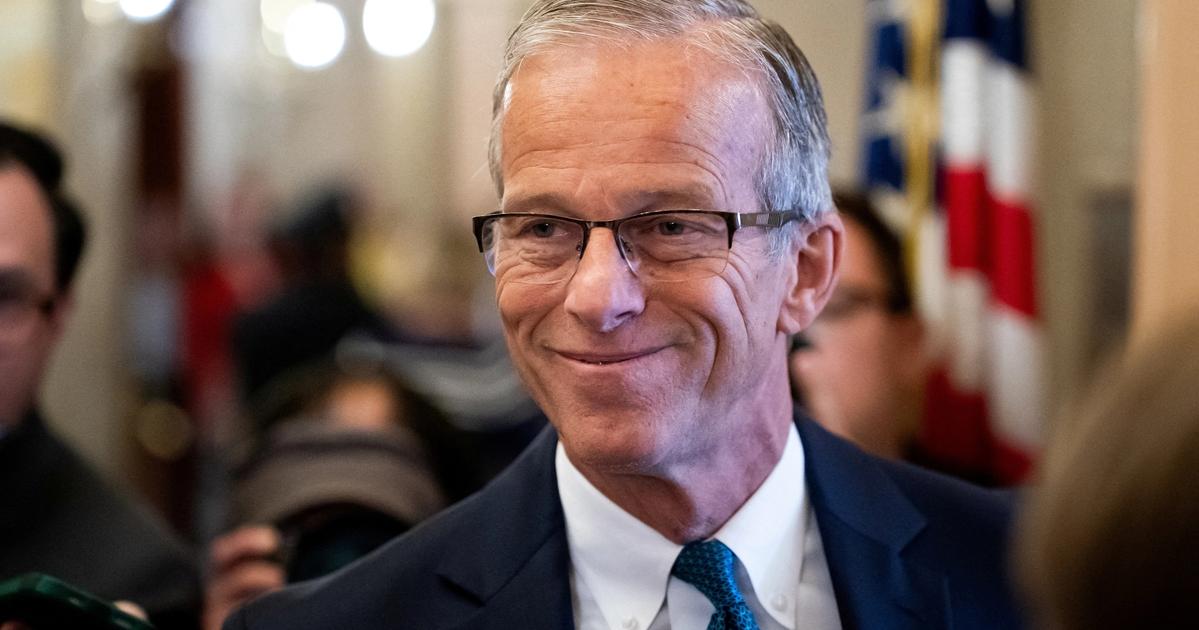How John Thune got Trump’s bill out of trouble

When Thune texted with Tillis late Saturday, he sensed something was up.
“I was like: ‘Don’t do anything rash, take some time on this’ … he’s been very cagey about that for some time,” Thune said. “I just tried to encourage him not to react to anything that was happening in the moment, but to kind of step back a bit. He obviously decided that this is what he wanted to do.”
Thune called the timing of Tillis’s exit “unusual.”
Tillis’ seat is a problem, and potentially a big one, for another day. Most immediately, Thune needs to ensure House Speaker Mike Johnson is able to pick up his legislation and pass it. Already Rep. Don Bacon, R-Neb., is complaining about health care and energy changes while the conservative Freedom Caucus pans the bill’s deficit increases.
It was hard enough to get the “big, beautiful bill” through the Senate. Sen. Jim Justice, R-W.Va., whose state has a large number of Medicaid beneficiaries, said of the steep cuts to the provider tax: “Dag, I wish to goodness we didn’t have that. But you have everything else here that’s so good: What are you going to do?”
“I was a little surprised … President Trump, his feelings are my feelings. Get rid of fraud abuse and waste and absolutely have the work requirements,” Justice added. “And then, stop.”
That’s not what happened. Sen. Josh Hawley, R-Mo., called the more aggressive cuts “one of the strangest things” to happen to the bill.
Justice said it was “unfair” to solely blame Thune for the changes to the massive party-line bill, which also extends expiring tax cuts and creates some new ones. Thune’s predecessor Mitch McConnell said he “did an excellent job.”
“It is impressive that the leader was able to get such a conservative piece of legislation and get everyone on board,” said Sen. Katie Britt, R-Ala.
Thune’s genial demeanor, a 180-degree contrast from Trump’s, belies his deep-rooted conservatism. Yet Thune’s Midwest vibes are pretty helpful when it comes to a demanding president.
“We’ve had some fairly spirited conversations about … things he wants. And, you know, why I feel like we can or can’t do certain things.”
“There are always interesting conversations, as you might expect,” Thune added.
Other Republicans talk to Trump too, including Hawley — who then made a habit of informing Washington that Trump wants a softer touch on Medicaid.
“That’s a challenge. He’s so accessible that any senator that basically picks up the phone and calls him, he’ll answer it. They’ll weigh in with their side of the argument. He’ll agree to it,” Thune said, adding that at times “I have to ensure that he’s hearing the other side of the argument, sometimes even from the one that he’s hearing from our colleagues.”
Thune placated those worried about Medicaid impacts with a delay to the provider tax changes and the addition of a key radiation exposure health care fund, Hawley’s top legislative priority. Those early moves were crucial because, before he could get Murkowski, Thune needed to turn to his conservatives.
“We’ve had a more conservative, more collaborative process, that’s definitely true,” said Sen. Ron Johnson, R-Wis., who initially opposed bringing the bill to the Senate floor and had voted previously against McConnell as leader.
Johnson flipped his vote after Thune agreed to not only allow a vote on an amendment from Sen. Rick Scott, R-Fla., to cut federal payments to Medicaid expansion states – but also to lead the charge. The amendment split the conference badly, and never got a vote.
Through it all, Thune kept talking to Sen. Susan Collins, R-Maine, a moderate Mainer who blanched at the bill’s Medicaid cuts. He said he did “everything we can to try and get her to a good place. But sometimes it’s not going to be enough. And we understand that.” Ultimately she voted no.
With Tillis’ retirement, Thune is left praying that Collins runs again in Maine, a place where Thune says “nobody else [in the GOP] can win.”
“I don’t have any reason to believe she’s not. But that’s always a decision people make on their own,” he said.